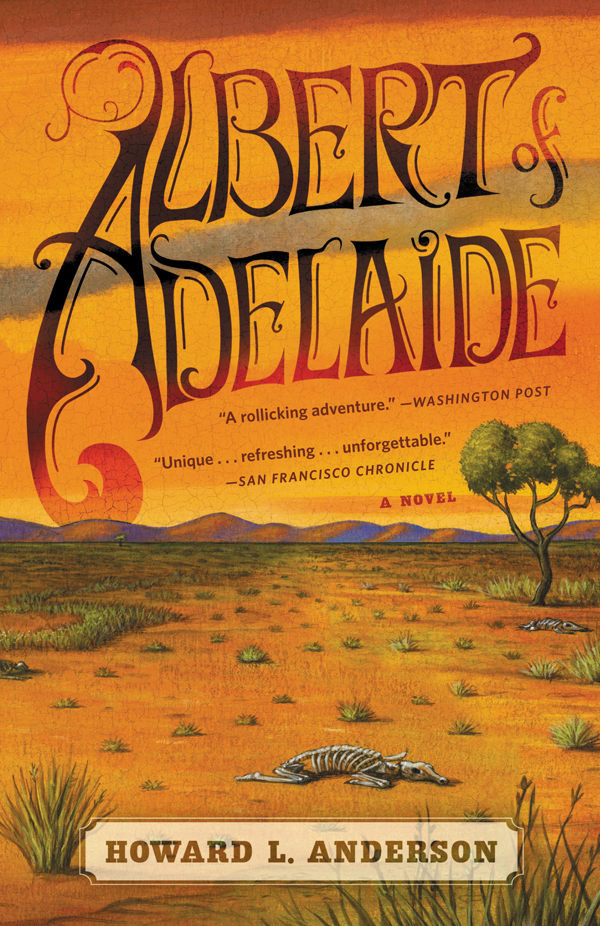
Albert of Adelaide
A Novel
کتاب های مرتبط
- اطلاعات
- نقد و بررسی
- دیدگاه کاربران
نقد و بررسی

April 2, 2012
In his first novel, the 66-year-old Anderson creates the memorable Albert, a duck-billed platypus who flees the captive monotony of the Adelaide Zoo to search for Old Australia, “the place where things haven’t changed and Australia is like it used to be.” He arrives in the outback blistered, burned, and no closer to this mythic land. But a lively assortment of vagabonds (wombats, bandicoots, and a Tasmanian devil among them) populate the frontier towns the humans have abandoned. First with Jack, an aging wombat, and then on his own, in the Gates of Hell, Albert has adventures, finds trouble, and goes on the run again, robbing unsuspecting animals on the roadside (the old Australia of Albert’s dreams is more criminal and less ideal than he’d imagined). Soon he’s wanted, pursued, captured, and sentenced to hang for his crimes. Throughout his journey, Albert hears tales of Muldoon, the legendary Tasmanian devil of Old Australia, who, once discovered, helps Albert with all the skirmishes and scrapes he must endure in order to live out his dream of freedom. Anderson’s tale is slow to start but quick to satisfy with old-fashioned pleasures: action, adventure, fast friends, and unlikely heroes. Agent: Nicole Aragi.

April 15, 2012
There are no human characters in this debut novel of fantasy and allegory that will leave some readers wondering what the point of it is. The novel reads like Siddhartha transplanted to the Australian outback. Or like Lonesome Dove recast for a platypus, wombats and dingoes. Or like the novelization of a Pixar animated feature with way more blood and alcohol than usual. The titular protagonist is a duck-billed platypus who, having escaped from the Adelaide zoo, wanders into the desert, having "no idea where he was going, or exactly what he was looking for." He had a vague idea of a destination, "somewhere in the desert...a place where old Australia still existed...keep going north...the Promised Land." The narrator continues: "Those descriptions had sounded good in Adelaide, but they were worthless in a desert where every direction looked the same." Before long, Albert finds company in Jack, a wombat who has more experience in the ways of the desert, and who tends to fight fire (and everything else) with fire. The two end up in a bar, one that could have been from any Western, except everyone there is an animal, and none of these animals had ever seen a platypus in the desert. Albert, whose natural habitat is water, thus has his first encounter with a different strain of prejudice: "At the zoo, Albert had been an object of curiosity and ridicule. In Old Australia he found himself an object of hate and mistrust." Trouble ensues, Jack and Albert split up, and Albert finds himself at the Gates of Hell (literally, there's even a sign saying so), the target of a manhunt (er, platypus-hunt), the leader of a renegade posse of dingoes and the recipient of age-old wisdom such as, "A gun can get you into trouble and sometimes it can get you out of it." And, "A good run is always better than a bad fight." A novel that tests the reader's patience for animal whimsy and elaborate fables.
COPYRIGHT(2012) Kirkus Reviews, ALL RIGHTS RESERVED.

February 15, 2012
Albert is a platypus, escaped from Australia's Adelaide Zoo and making a break for it through the Outback. Along the way he encounters two drunken bandicoots, a pyromaniac wombat, a combative Tasmanian devil, kangaroos, dingoes, and more while learning bravery and some other important life lessons. Watership Down Down Under, reputedly a charmer with rights sales to a half-dozen countries; Anderson is publishing his first novel at 66.
Copyright 2012 Library Journal, LLC Used with permission.

























دیدگاه کاربران